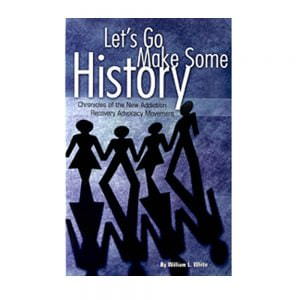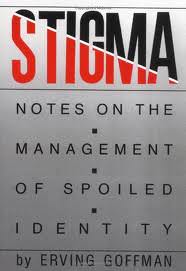Search Results
Language matters. The words we use to describe substance use disorder, people using drugs, and people in recovery has the potential to cause a significantly detrimental impact in a number…
Read MoreOppression involves objectification and rendering the targeted person or group as the ‘other.” That distinctive “otherness” is then conveyed in caricatured images that feed stigma, social exclusion, and, in its…
Read MoreLet’s Go Make Some History, Chronicles of the New Addiction Recovery Movement is the well-acclaimed collection of essays and articles by William White. He is the author of Slaying the…
Read MoreLanguage matters. It’s a phrase often spoken among recovery advocates, and generally refers to shifting the way we speak about addiction and recovery so that we reduce the stigma surrounding…
Read MoreThe Recovery Voices Count campaign is part of Faces & Voices ongoing work to build a powerful recovery advocacy movement by supporting nonpartisan civic engagement in local, state, and national…
Read MoreThe Recovery Voices Count campaign is part of Faces & Voices ongoing work to build a powerful recovery advocacy movement by supporting nonpartisan civic engagement in local, state, and national…
Read MoreLet’s Go Make Some History! After 2001 recovery advocates across the country responded to the Call to Action issued at Faces & Voices of Recovery’s founding. Here are reflections from…
Read MoreTechnologies to promote recovery have targeted the individual with only token interest in interventions in larger social networks. Three provocative discoveries challenge this limited focus: 1) An individual’s prognosis for addiction recovery is profoundly influenced by the family and social environment—a point now widely acknowledged but rarely reflected in the clinical treatment of substance use disorders, 2) the resolution of alcohol and other drug (AOD) problems is often a product of social contagion–multiple people within an extended social network simultaneously initiating and maintaining recovery, and 3) the greater the density of recovery carriers within a social milieu, the greater the likelihood other addicted members within that milieu will initiate recovery.
Read MoreThe addiction recovery experience has been sliced and diced in all manner of categories: secular, spiritual, and religious; natural recovery, peer-assisted, and treatment-assisted; and abstinence-based, moderation-based, and medication-assisted, to name just a few. Recovery achieved through any of these frameworks is often referred to as a pathway of recovery. The growing consensus that there are multiple pathways of long-term addiction recovery marks an important public and professional milestone within the alcohol and drug problems arena.
Read MoreOriginal Blog Date: August 28, 2013
The suggestion that there are multiple and diverse pathways of long-term addiction recovery has evolved from a heretical statement to a central tenet of an international recovery advocacy movement. As tens of thousands of people representing diverse recovery experiences stand in unison in September’s recovery celebration events, it is perhaps time to explore and then put aside past divisions within and between communities of recovery.
Read More




